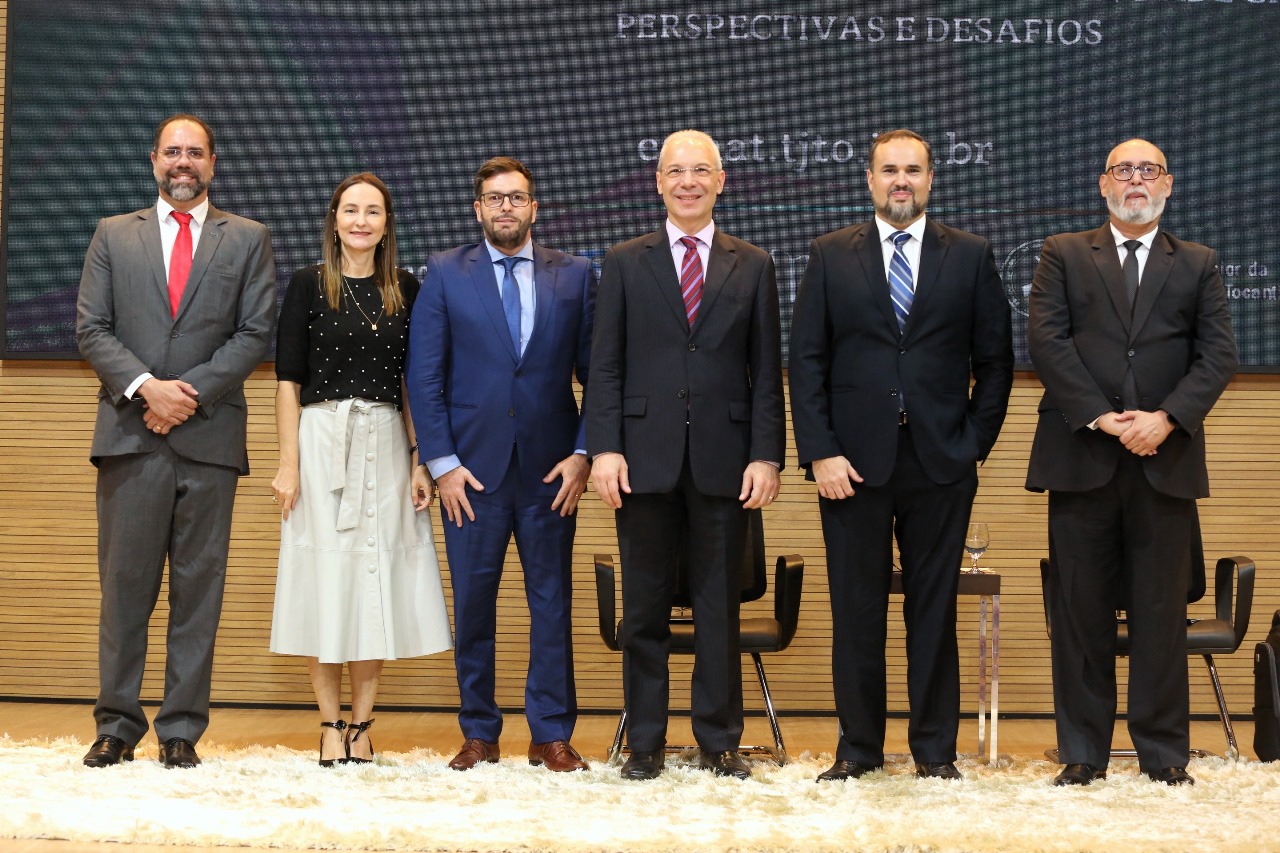
The presentation of the proposal to unify the laws on Special Civil Courts in Brazil, by Felippe Borring Rocha, Professor of Civil Procedural Law at the Federal University of the State of Rio de Janeiro, closed the Seminar on Special Courts: Consumer Rights, Civil Liability, Perspectives and Challenges, on Monday (June 3rd), in the auditorium of the Court of Justice of the State of Tocantins (TJTO).
The professor opened the lecture by saying that he has been working with Special Courts since 1998 and that, today, he sees the Court as saddened by the fact that he sees jurists advocating its end. When presenting the proposal to unify the laws, Felippe Borring explained that the Special Courts were created by the Federal Law No. 9.099/95 as instruments for democratizing justice in order to resolve less complex cases in a simple, fast, economical and safe way, seeking, whenever possible, an agreement between the parties.
He recalled that the Law No. 9.099, on Special Courts, is a copy of the Law No. 7.244 /1984, on Small Claims Courts, which means that it has been in existence for almost 40 years and it has a big time lag. To discuss a new proposal, the Professor said that a commission was set up with representatives from several powers, but the idea didn't go ahead, so the proposal was drawn up between 2015 and 2016. According to Felippe, the idea was to create a project in which experiences could be improved, creating its own unified model.
"In line with the logic and methodological structure of the Code of Civil Procedure of 2015, divided into common parts for all models, respecting the special rules and the general part. A general theory of the Courts that would be common to the three processes, State, Federal and Farm Courts, respecting their peculiarities, and a special part with the procedures, appeals and means of challenge, in other words, it would be a kind of mini code just for courts."
After explaining the whole proposal, the professor said that it was presented to a Federal Deputy and sent to the Federal Council of the Brazilian Bar Association, but so far has not been followed up. Despite this, it was approved by the Institute of Brazilian Lawyers (IAB) and it had a motion from the OAB/RJ to be approved.
The lecture was coordinated by Judge Marco Antonio da Silva Castro, who at the end said that the proposal was bold and that if approved it would be an innovation for the Special Courts system. “I think the system deserves to be restructured because the way it is, it's exhausted”.




